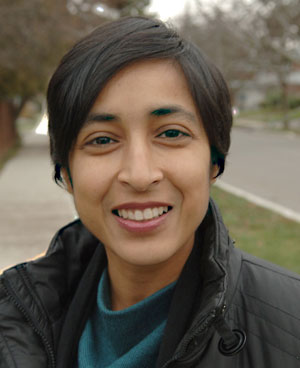The legal profession has a reputation for being conservative, traditional, and slow to adapt. While I’m one of the last people to dispute these charges, it’s a little myopic to paint the entire profession with that brush. Legal professionals are continually innovating and trying to find new and better ways to make the law more humane, just or efficient.

The Hague Institute for the Internationalisation of Law recently concluded its first Innovating Justice awards that sought to recognize international work in the field. The award has separate categories for ideas and successful programs. Ushahidi, an open-source web application for information collection and visualization, won the award for successful project. Alongside Ushahidi were five other innovative projects that represent a change in the way legal professionals are promoting justice:
1. San Diego’s Homeless Court Program has judges and prosecutors come to shelters to meet the city’s homeless on neutral ground. It has proven a successful model and has served as a template for 50 similar programs in other cities.
2. Courthouse dogs: As far back as 1989, dogs have assisted victims and children in criminal law cases. The Courthouse Dog Foundation advocates for the increased use of trained dogs to provide emotional support and encourage compassion in courthouses.
3. The Broward mental health court: The mental health court tries to keep people with mental illnesses out of prison by diverting summary and non-violent crimes to various community treatment options. The court has already kept 16,000 people out of jail.
4. Peru’s Terre des hommes: A four-pronged approach in Peru aimed at addressing youth justice that includes legislative change, direct action, and specialized training for police, judges, and prosecutors.
5.Street arbitration in Egypt: Working within an established legal framework, an association of street arbitrators tries to solve disputes that arise among families and communities in order to prevent escalation to criminal activity or civil violence. The Horas Alwatan Association suggests the reason these disputes become violent or criminal isn’t because of a lack of security but the lack of fast, low-cost, direct, and simple interventions.
Are awards like this sufficient for recognizing and encouraging the sort of innovation the legal profession desperately requires? This was the Hague institute’s first year for the awards and while media coverage has been slow, the sheer quality of some of the nominees makes me excited to see what will come of it next year.
Monica Goyal is a lawyer and technology entrepreneur. She’s the founder of My Legal Briefcase and Simply Small Claims. You can follow her on twitter at @monicangoyal.

 The Hague Institute for the Internationalisation of Law recently concluded its first Innovating Justice awards that sought to recognize international work in the field. The award has separate categories for ideas and successful programs. Ushahidi, an open-source web application for information collection and visualization, won the award for successful project. Alongside Ushahidi were five other innovative projects that represent a change in the way legal professionals are promoting justice:
The Hague Institute for the Internationalisation of Law recently concluded its first Innovating Justice awards that sought to recognize international work in the field. The award has separate categories for ideas and successful programs. Ushahidi, an open-source web application for information collection and visualization, won the award for successful project. Alongside Ushahidi were five other innovative projects that represent a change in the way legal professionals are promoting justice: